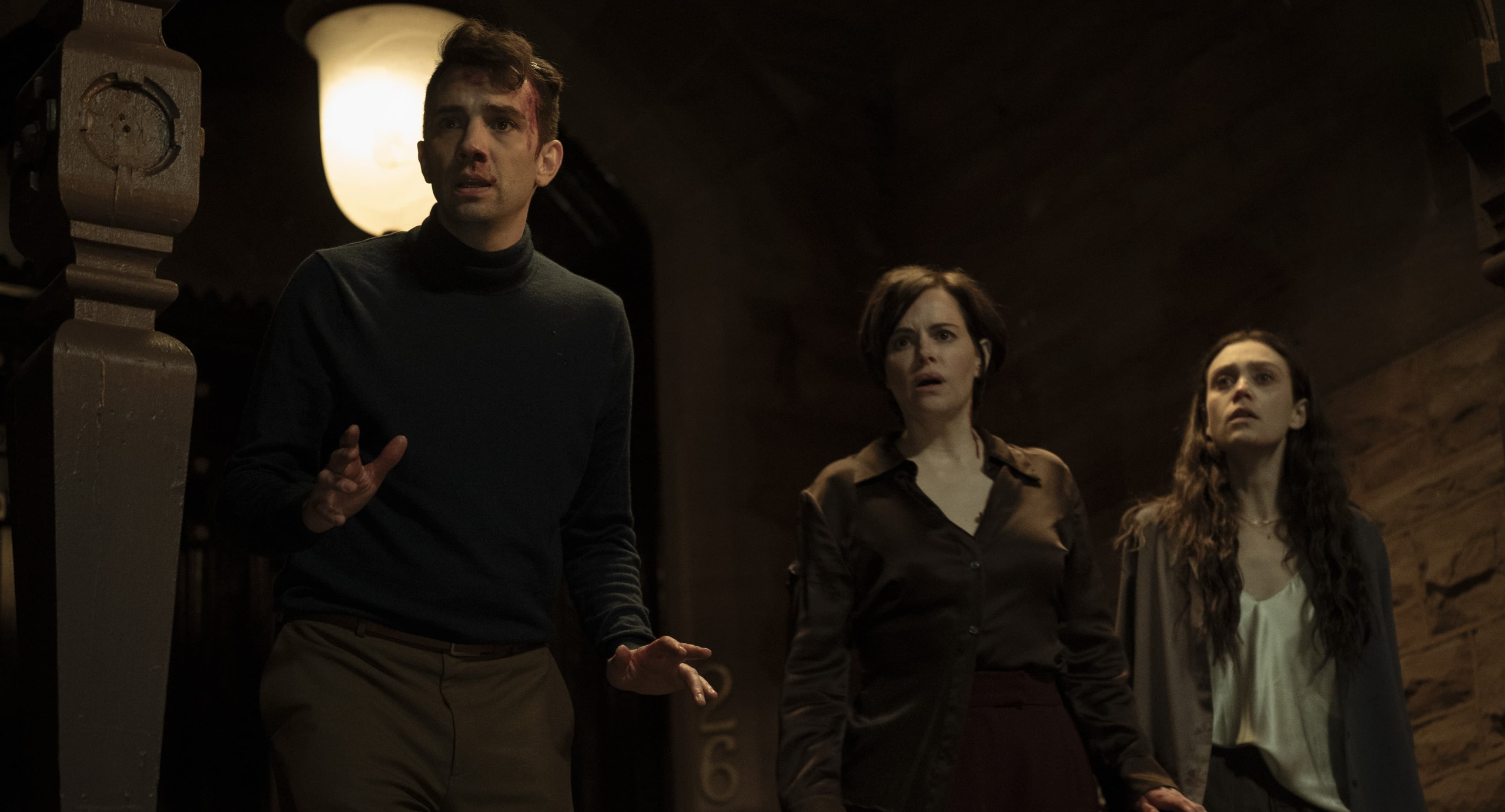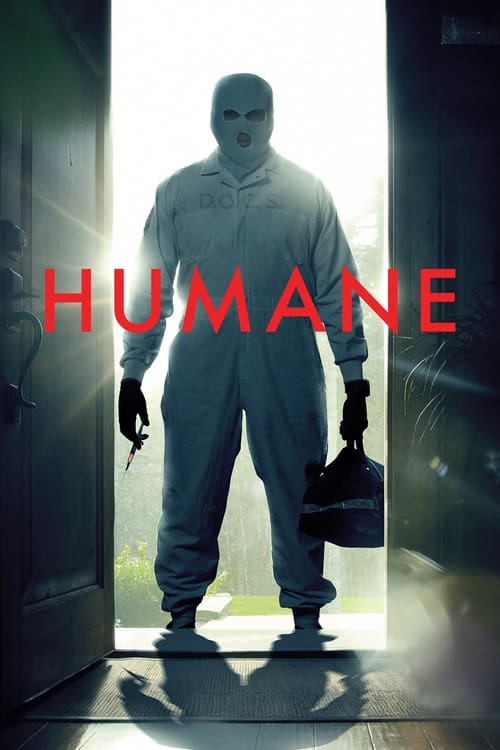Humane – Film Review
Published April 27, 2024

Humane, a film blending the harrowing depths of horror with the emotive stirrings of family drama, arrives with a weighty premise tucked beneath its belt. Directed by Caitlin Cronenberg in what marks her debut in the arena of feature filmmaking, and penned by Michael Sparaga, this cinematic venture ambitiously tackles the globe’s looming nightmare: the climate crisis. Through a narrative scaffold that unfolds over the course of a singular, tension-filled day, the film ambitively peers into a near-future, mere months post a catastrophic ecological collapse. A premise ripe with potential yet, regrettably, it’s the film’s execution, not its concept, that stumbles and ultimately undermines its promising setup.
Set against the backdrop of a world on the brink, Humane introduces us to Jared (played by Jay Baruchel), a recently retired newsman who, in the face of earth’s desperate pleas, decides to enlist in the nation’s newly instituted euthanasia program. This grave decision serves as the narrative fulcrum around which the film’s thematic explorations pivot. Alongside Baruchel, the ensemble cast featuring Emily Hampshire as Rachel, Peter Gallagher as Charles, Enrico Colantoni as Bob, and Sebastian Chacon as Noah brings a blend of experience and fresh talent to the screen. Yet, despite these promising ingredients, the film’s flavor falls regrettably flat.
One of Humane’s most palpable flaws lies in its narrative pacing. The storyline, although conceptually profound, meanders through its one-day timeline with an inconsistency that jars. Moments intended as climactic come across as underdeveloped or excessively rushed, leaving the audience adrift in a sea of unanswered questions and unexploited tension. For a film that aims to interweave the complexities of a family drama with the pulse-racing urgency of a horror thriller, Humane remarkably manages to dilute the impact of both genres.
The film’s attempt to address the climate crisis is commendable yet heavy-handed, failing to fully harness the emotional and psychological depths such a crisis could unearth in humanity. Instead of providing a nuanced exploration of its characters’ motivations and the moral quagmires surrounding the euthanasia program, the narrative often succumbs to didacticism. This is particularly palpable in its portrayal of the ecological collapse’s aftermath, where instead of showing, the film predominantly tells, depriving the audience of the opportunity to organically grapple with the narrative’s ethical and emotional stakes.
Despite the film’s thematic and narrative missteps, its technical execution—namely, Cronenberg’s direction and the cinematography—exhibits flashes of promise. The director’s use of claustrophobic close-ups interspersed with sweeping, desolate landscapes adeptly underscores the film’s overarching sense of isolation and despair. These visual choices hint at a directorial sensitivity that, had it been better supported by a tighter script and more coherent narrative vision, could have elevated the material significantly.
Performance-wise, Jay Baruchel delivers a commendably restrained portrayal of Jared, a man teetering on the edge of despair and resolve. However, the script doesn’t provide sufficient depth to fully leverage Baruchel’s capabilities, rendering Jared’s emotional journey somewhat superficial. Emily Hampshire’s Rachel, while showing flashes of complexity, ultimately falls victim to the same fate—a character whose potential depth is skimmed rather than explored. The supporting cast, including the talents of Peter Gallagher and Enrico Colantoni, brings gravitas to the screen, yet their characters similarly suffer from underdevelopment and a lack of substantive narrative arcs.
Humane aims to echo the thematic resonance and socio-political commentary of classics in the horror-thriller genre but lacks the narrative cohesion and emotional intelligence to fully realize its ambition. While it manages to scratch the surface of its poignant themes, the film seldom dives into the profound ethical conundrums it tentatively raises, resulting in a viewing experience that feels both emotionally and intellectually unfulfilling.
The movie’s score and sound design are, however, worthy of note, managing to evoke a sense of impending doom and atmospheric tension that the narrative itself struggles to sustain. These elements, while effective, can do little to salvage the film’s broader issues but suggest an undercurrent of potential that might have been tapped with a more rigorous approach to the film’s storytelling and thematic exploration.
Humane is a film burdened by its ambitions, a project that, despite its promising premise and the urgent relevance of its thematic concerns, fails to deliver a coherent and compelling narrative experience. Caitlin Cronenberg shows glimpses of a distinctive visual style and directorial flair that, if harnessed and refined, could yield compelling future works. Humane, however, remains a testament to the challenges of translating high-concept thematic ambition into engaging, emotionally resonant cinema.
